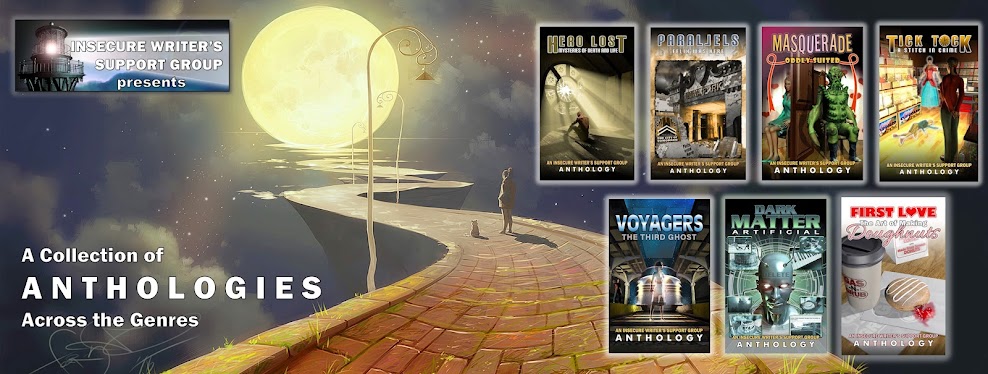by Gwen Gardner
I’m always impressed by the quality of writing in the Insecure Writers Support Group anthologies. To me, it’s a prestigious compilation of stories by respected members of this growing community of writers. When I won top spot in the third anthology, Tick Tock: A Stitch in Crime, I was sure someone made a mistake. I mean, I write cozy mysteries. Cozies are gentle reads. They are clean, low key, and low action. Any violence happens off stage and sex is never mentioned.
So how did a cozy mystery story win the top spot in the anthology? First, I went back to the basics that every writer knows: hook, strong verbs and dialogue, quirky characters with flaws, a grounded setting, show rather than tell, and edit, edit, edit. We all know the drill.
I always knew the competition was tough. That much was apparent once I’d read all the stories in Tick Tock. But now that I’m a judge of the next IWSG anthology, it’s become even more apparent. The margin of excellence is so narrow between the remaining competitors that it’s nearly impossible to choose a favorite. As a judge, how do I pick my top three favorites when they all deserve to win? What is that extra something you can do that gives you the winning edge?
Go back to the guidelines:
- Keep your eye on the theme and genre. In Tick Tock: A Stitch in Crime, the theme was time/clock and the genre mystery/crime/thriller. When I won, the title I submitted to the contest was, A Stitch in Crime. It’s a play on the old saying, “A Stitch in Time”. So you can see I used both the time theme (through a play on words) and the genre (crime) in the title.
- Continue the theme throughout your story. In my story, time was running short to reunite a little girl with the nun who raised her.
- Come full circle by tying the ending of the story to the beginning. In the beginning of my story, my main character was learning how to cross-stitch. Towards the end of the story, a cross-stitch panel ends up being the clue that solves the mystery.
How do you stay up on the writing craft?
Any tips or tricks you use?
Gwen Gardner’s story, A Stitch in Crime, won the feature spot in the IWSG Anthology #3. She writes clean, cozy, lighthearted mysteries with a strong ghostly element. Since ghosts feature prominently in her books, she has a secret desire to meet one face to face – but will run screaming for the hills if she ever does.
She thinks there’s nothing better than a good mystery (being an excellent armchair detective herself), unless it’s throwing a ghost or two into the mix just to “liven” things up. Don’t worry, though. Ghosts may be difficult to keep in line, but they’re harmless—mostly. And it turns out they’re pretty good sleuths, too.
Gwen adores travel and experiencing the cultures and foods of different countries. She is always up for an adventure and anything involving chocolate – not necessarily in that order.















